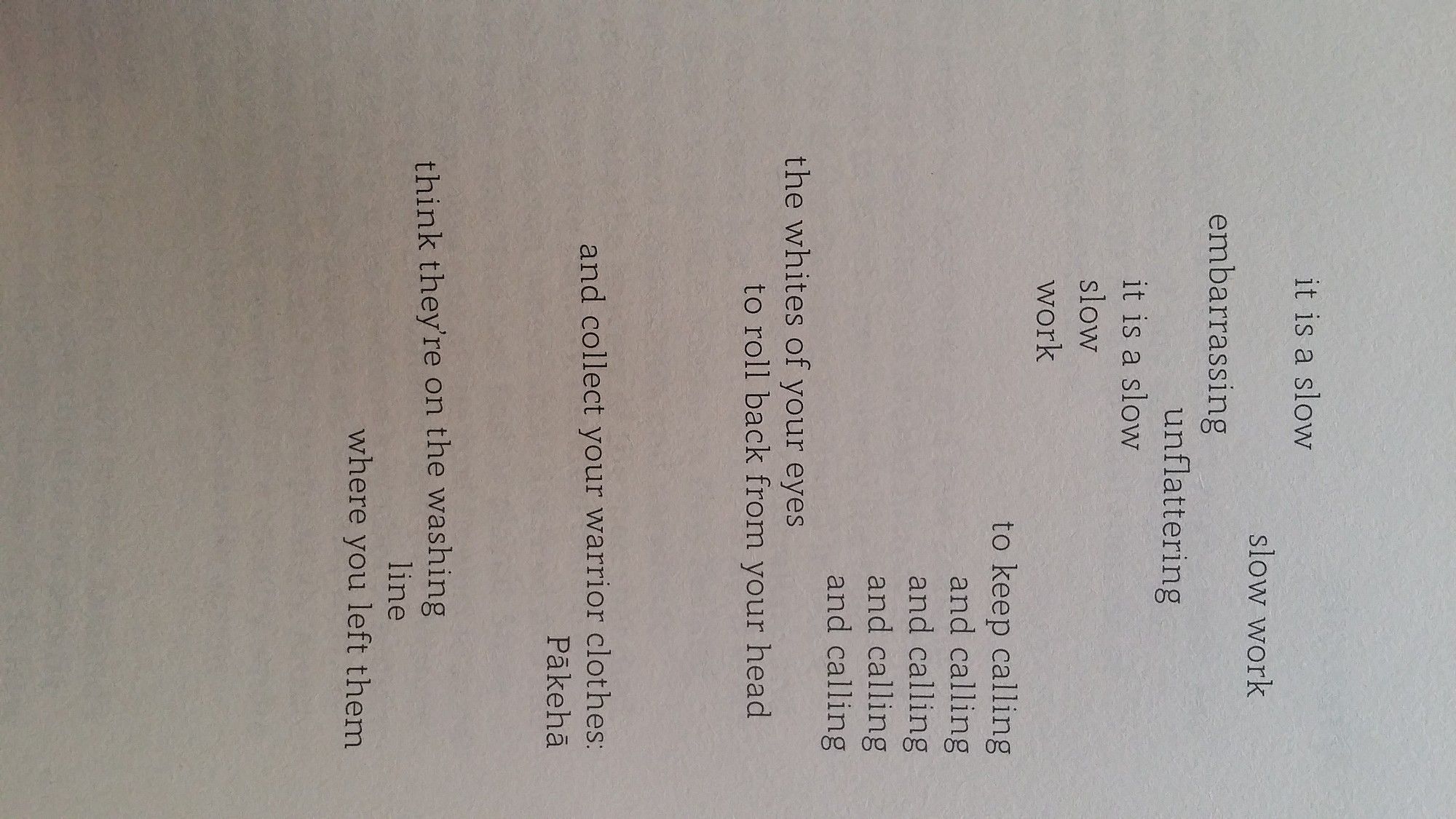Review: Real Fake White Dirt
Like a blunt instrument to the solar plexus, Jess Holly Bates' poetry collection 'Real Fake White Dirt' knocks us for six with the force of her soapbox charisma and devastatingly keen analysis of the current state of affairs. Following its Edinburgh Fringe innings, Alex Taylor whets Wellington audiences for its live return next year.
Jess Holly Bates is a singularly expressive and compelling performer. Her spoken word poems are not only politically loaded but poetically visceral, propulsive, immediate. Here she tackles a subject of some discomfort – the post-colonial condition in New Zealand, the Pakeha identity and its relation to the wider cultural context. Like a blunt instrument to the solar plexus, Bates knocks us for six with the force of her soapbox charisma and devastatingly keen analysis of the current state of affairs.
For me Real Fake White Dirt is ideally read as a written record of oral poetry. It needs to be read aloud, no, performed, to get the best purchase from its tangible imagery, its clusters of confronting consonants. The printed page isn't always kind to the text: what might be full of adrenalin, direct, as oral text, can come off as crude or clumsy in places. The printed page favours subtlety over clarity: in performance we get to hear things just once, while the written word has to stand up to multiple readings. Here we occasionally get stuck in nursery rhyme, “this nasty nostalgia / it must come unstuck / if we want to take stock / of this country / of luck” but the writing is also abundant with unexpected shifts and less formulaic rhythms: the enthusiastic drive of the enunciation workout (“you gotta / activate the palate / to trill the reo”) or the beautiful nested rhythmic cycles of “fishing for my patriotism in the / dirt under my Titirangi / fingernails.”
Bates's descriptions, always vivid, at times border on the delightfully lurid. These range from the colloquially ridiculous “like the little Chinese man / has been hatching lucky dragons in my dinner / the counter is always sticky” to the scientifically graphic: spoiled milk has a “vascular hide”, a “throat-flexing membrane”. In fact Bates has a knack for the scientific, the taxonomical. Her carefully crafted glossary reads like a rogue biology textbook, and her choice of images favours the grounded, earthy, geographical: “we are pruning shears shaking in white hands / nibbling back ugly stumps of history / to try / to seed in bicultural fertility.” One of the strengths of the book is the incisive sense of place and how everything relates to that, whether rooted deep, or carefully attached to the surface, like the square of astroturf on the cover.
One of the most interesting episodes in the book is a commentary on ANZAC celebrations. The dawn service is recast as a funeral for “the poppa I never knew” and a symbol for the rootlessness of Pakeha identity, a cherry-picked replacement for our own detachment. Bates describes “a nation histrionic for an ever-diminishing history”: by implication a nation histrionic to forget the other stuff. Like Miranda von Stooth, one of Bates's Pakeha caricatures, Anzac day is “smoothing the furrowed face of the nation / one white wrinkly brow at a time.”
What eventually reveals itself as a call to action (“collect your warrior clothes”) is consistently hard-hitting throughout, but enlists some rather easy, disparaging stereotypes on the way. The cast of Pakeha caricatures is two-dimensional, and what might be playfully facetious in performance comes across as a rather grating sarcasm here. The selectively sketched “honkie hoard” are in contrast to the more intimate portraits of two-year-old Lexi-Jane “stuffing fingers that freeze between her teeth” and even the distant poppa, a “polar bear / stuck on an ice floe / melted from the mainland.”
The cardboard cutouts somewhat undermine the generally nuanced, layered and discomfiting vision that Real Fake White Dirt presents. But they can't distract from the central message. Bates confronts head-on the willingness of so many of us to bury our heads in the sand: “we are dropping history / like your keys / into a bowl / so you can get drunk on the present.”
Live performances of Real Fake White Dirt are set for a Wellington season in early 2015: follow @realfakewhite for further announcements soon.


